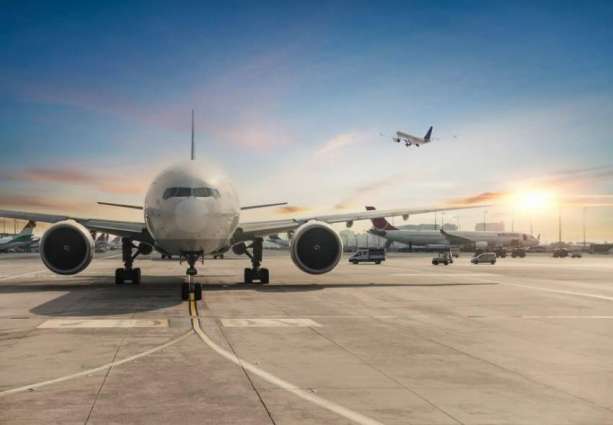Sustainable aviation fuel (SAF) can help decarbonize the global aviation industry, although the current supply constraints are limiting its widespread use by airlines, Sebastian Mikosz, the association's senior vice president for member and external relations, told Sputnik in an interview
MOSCOW (Pakistan Point News / Sputnik - 15th March, 2021) Sustainable aviation fuel (SAF) can help decarbonize the global aviation industry, although the current supply constraints are limiting its widespread use by airlines, Sebastian Mikosz, the association's senior vice president for member and external relations, told Sputnik in an interview.
SAFs, or biofuels, use sustainable feedstocks such as waste oils and household waste, to achieve a net carbon emissions reduction. Earlier this year, the Dutch arm of Air France-KLM operated a passenger flight between Amsterdam and Madrid using regular fuel mixed with 132 gallons of biofuel, and German flag carrier Lufthansa has conducted cargo flights using SAF.
Despite these developments, Mikosz said that it was unlikely that the aviation industry could run fully on SAF for another decade, at the minimum.
"I think we are still quite far away from 100 percent sustainable aviation fuel fully in the industry. I think we are at least one or two decades ahead of it, but what I can tell you on the other hand, is that it is for sure the pathway to go. So, it's not a question of if it's going to happen, it's rather a question of when it's going to happen," Mikosz said.
The International Civil Aviation Organization's (ICAO) member states back in 2010 agreed on a landmark deal to commit to stabilize greenhouse gas emissions, and Mikosz said that the aviation industry is going to great lengths to cut its carbon footprint.
"Sustainable aviation fuels are the only technology that we have which is seriously and considerably reducing our impact on CO2. We are the only industry that self-regulated itself more than 10 years ago on having a system of how we all want to decrease our impact on CO2. That's despite the fact that we globally as an industry, the whole air transport industry, contribute less than two percent of worldwide emissions," the IATA senior vice president said.
The biggest challenge facing the rollout of SAF technologies is producers' ability to meet the growing demand, Mikosz added.
"We need with time to have more and more supply and, of course, this supply will have a positive impact on the price, because today, sustainable aviation fuel does not have enough supply to be competitive in terms of pricing," the IATA senior vice president commented.
According to IATA estimates, 26.4 million gallons of sustainable aviation fuel will be produced in 2021.
As recently as Tuesday, American Airlines and logistics giant Kuehne+Nagel agreed on a deal to deploy 3 million gallons of sustainable aviation fuel. The airline has committed to using 9 million gallons of SAF over the next three years.




